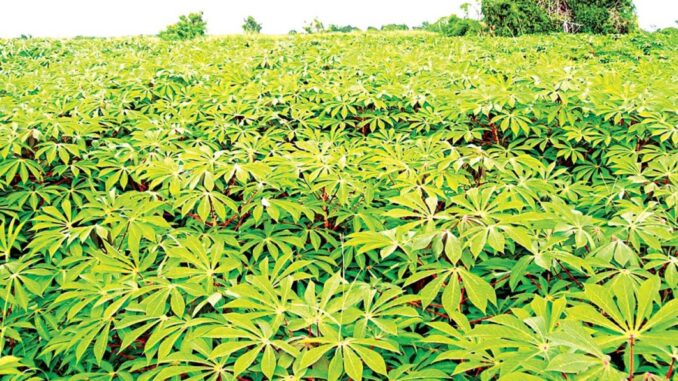
Despite accounting for approximately 20 per cent of global cassava production, Nigeria’s cassava seed system is bedeviled with low yield of smallholder farmers, among other challenges.
A partner at Sahel Consulting, Temitope Adegoroye, who disclosed this during the first cassava business summit, organised by Building an Economically Sustainable and Integrated Cassava Seed System, Phase II (BASICS-II) project and convened by Sahel Consulting, said there are opportunities in the cassava seed system sub-sector to catalyze the country’s agricultural transformation, but the opportunities have not been fully tapped for job creation, income generation and food security.
Adegoroye said the need for effective collaboration amongst all cassava stakeholders to maximize the potential in the value chain gave birth to the first edition of the summit.
Themed: “The Critical Roles of Stakeholders in Promoting Access to Quality Cassava Stems,” the objective of the summit, was to provide a platform for actors in the cassava seed sector to collaborate, share the BASICS-II model and innovations that would foster an economically viable and sustainable formal cassava seed system.
The virtual summit also sought to encourage private sector actors to harness the opportunities in the emerging formal seed system for cassava in Nigeria.
In his opening remarks, the Director, Development & Delivery, International Institute of Tropical Agriculture (IITA), Ibadan, Oyo State, Dr. Alfred Dixon, emphasised the significance of cassava as an engine in Africa’s socio-economic growth and development.
In addition, he stated that increasing competitiveness in the cassava value chain would ensure food security, alleviate poverty and improve livelihoods in Nigeria and sub-Saharan Africa.
Vice-president of Nigeria Agribusiness Group (NABG), Emmanuel Ijewere; President of Cassava Growers Association of Nigeria (NCGA), Pastor Segun Adewumi and President, Industrial Cassava Stakeholders Association of Nigeria (ICSAN), Mr. Charles Adeniji, also delivered goodwill messages.
They were excited at the emergence of a platform that serves as a discussion forum for stakeholders in the cassava seed sector. Besides, they underscored the increasing demand for quality cassava stems and the opportunities within the cassava seed system.
Director at the National Root Crops Research Institute (NRCRI), Dr. Joseph Onyeka, who represented the Executive Director of NRCRI, Prof. Ukpabi Joseph Ukpabi was delighted the summit was held at this crucial time.
He stated that the summit would assist in mobilising capital and human resources to ensure timely, adequate, and profitable interventions in the cassava value chain.
For the Director-General of Nigeria Agricultural Seeds Council (NASC), Dr. Phillip Ojo, the Cassava Seed Business Summit was timely as it arose when Nigeria is faced with challenges that a robust cassava seed sector could address.
A panel session tagged: “Backward Integration Focusing on Cassava Seed Multiplication–The Perspectives of Industrial Processors,” provided a platform to share experiences and examine challenges of industrial processors.
A manager at Sahel Consulting, Chinedu Agbara, moderated the panel, which comprised cassava processing industry leaders and experts, namely: Mrs. Yemisi Iranloye, Chief Executive Officer (CEO) of Psaltry International Limited; Mrs. Nike Tinubu, Executive Director of Eagleson & Nito Concepts Limited and General Manager of Premium Cassava Products Limited (PCPL); Mr. Seyi Oyenuga, Executive Director of ATMANcorp Nigeria Limited; and Mr. Tunde Solaja, Managing Director of Crest Agro Products Limited.
In his closing comments, the Project Manager of BASICS-II project, Prof. Lateef Sanni, promised to promote engagement with the private sector actors in cassava seed production, stressing that the private sector was crucial for cassava transformation.
END

Be the first to comment